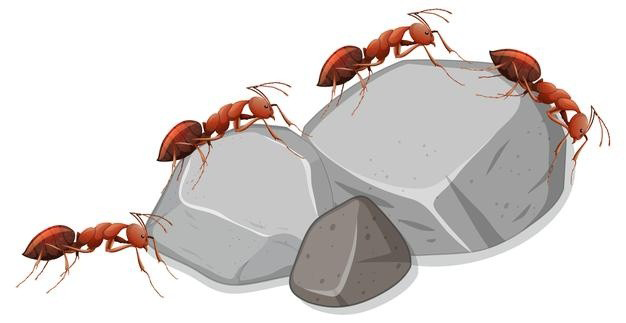
Not many people identify with ants (perhaps for a brief moment after the release of the Marvel action blockbuster Ant-Man). For most of us they are not in the forefront of our mind. The are too small to matter in our big and fast paced world. Despite their incredible strength, relative to their mass, their size works in their disadvantage.
Yet as a colony they are a formidable organism in its own right. I won’t dwell too much on the biology section, lest I risk loosing most readers at the second paragraph of this article, but lets just say that they are very well organized and every ant has a role to play in the colony: “every ant has a place in the ant hill”.
Taking a Darwinian leap to mankind there are some interesting comparisons with corporate culture in the past two years.

As I was having a coffee with a colleague in a café close to the office (yes you can do that again in some parts of the world), we were discussing the topic of mental wellbeing at work and home. The increasing number of people falling out of love with their work and or resigning, the amount of soul searching and the hype of self-help books and webinars; is our generation having their hippie moment? Will I wear a kaftan and listen to Demis Roussous? (wouldn’t mind that actually)
My colleague lovingly dubbed the work place an ant hill and then it struck me: we are ants without a hill. We have lost our colony and can only see them on Zoom. Most of senior management and HR departments have made thorough, academic studies around the topic of working from home. They have diligently and with care and attention surveyed the ant population to find out what the right mix of Work from Home (WFH) and office is, are collapsing floors to save space, and some have even allowed working from shared workspace locations.
But they missed one key aspect of coming to work. At work we are so much more than our job description; there, we are a vital part of a social network in which everyone have a unique role to play. Some are the motivator or optimist, some are critical thinkers or outright doomsday prophets, some arrange for the 3pm snacks and some simply know the best place to eat or party. These social roles emerge and evolve completely independent from the formal org chart hierarchy; even after people move departments they often remain a part of previous networks.
This seemingly unproductive side effect of people working from an office is no longer possible since two years: watercooler conversations are outlawed, but yet, when they do spontaneously combust amongst the people slowly returning to work, people are so excited, that they behave like a giddy kid in a candy store.
This social network deserves much more credit to an organization than it gets credit for and is its impact on productivity in todays new ways of working (NWW) needs to be much better researched and understood. It is one of the main drivers for work place happiness, creativity and diversity. Without it, many jobs are experienced as boring or even frustrating.
As a certified coach and experienced mindfulness facilitator I often get approached by colleagues or friend, who experience such feelings regarding their job, to the degree that they are willing to leave a well paid job to pursue an uncertain dream.
The bug doesn’t stop there; ever since the 1987 Hollywood hit Wallstreet, making big money is often no longer a dream, it is a hygiene factor. We can no longer be satisfied until we can step into that marble clad office armed with our badges of honor: Mercedes car keys, Chanel handbag, Rolex on the wrist, MontBlanc in the pocket. Wow, that’s a stark contrast to working from home in shorts a t-shirt. Many of us have grown to identify a lot with our job, but with what part of our job? You guessed it; its often with the social side of it.
In my charity work for one of the mental wellbeing organizations in Singapore, I have seen the strong impact it has had on people to lose their job related social network. Many are struggling, from lost to outright depressed. Especially youngsters are vulnerable.
So what is my solution for all this? I wish I had a cookie cutter, but its not that simple. These are new dynamics that need to be properly understood. Solutions must be experimented with. We won’t go back to pre-pandemic I suspect, but what about cross functional discussion groups around work related on -affiliated topics, to allow sharing views with new people, possibly even in an offsite location such as shared workspaces. One thing seems clear to me; whatever we do, the corporate social network and our role in it needs to take center stage.